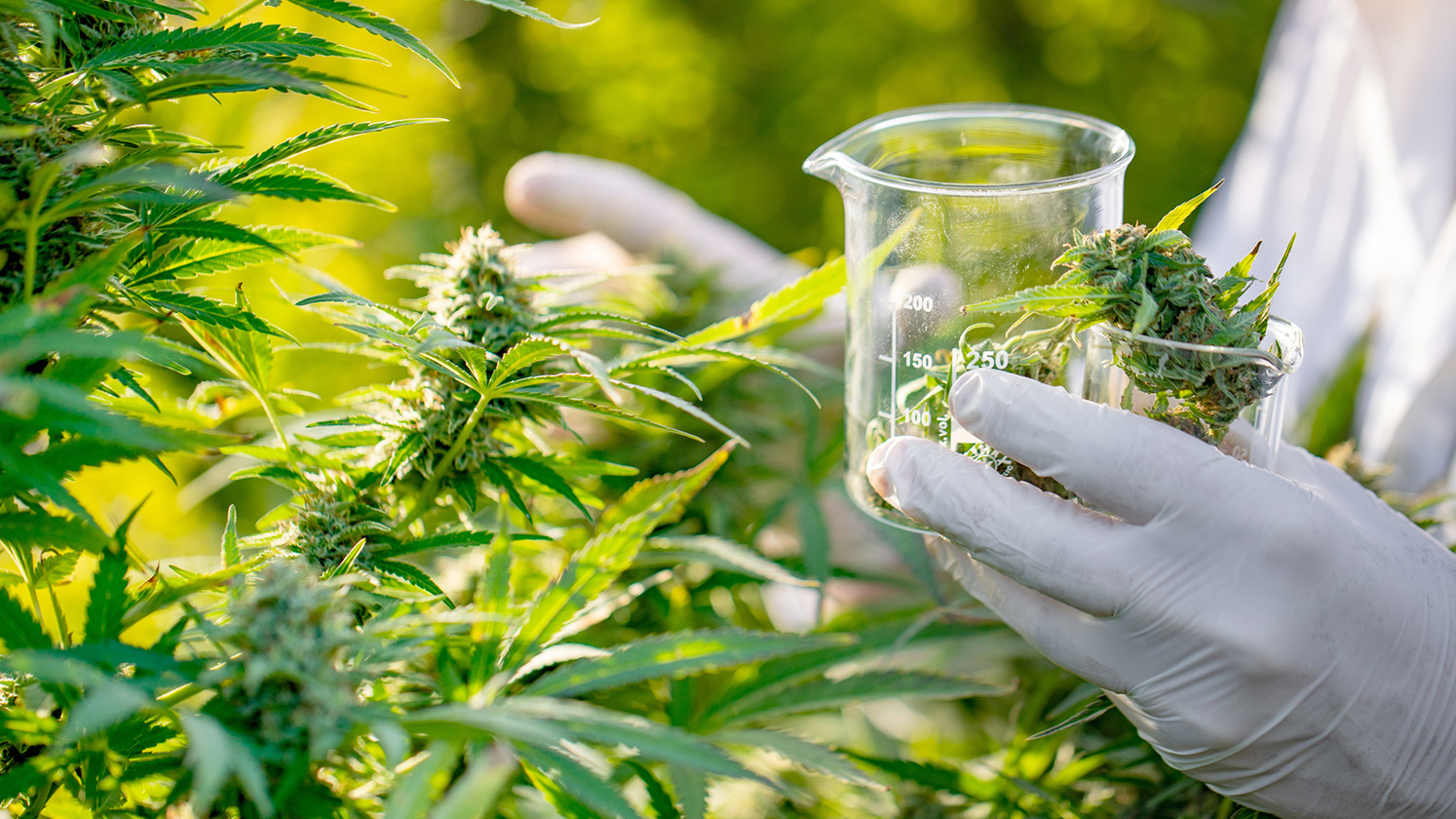Key points:
- Pot is now legal in 11 states and DC, fueling a quadrupling of cannabis job postings over the past three years.
- Job seeker interest in cannabis has soared even more, with cannabis-related searches up 650%.
- Marijuana budtender is the most common cannabis job title while sales associate is second.
- California is far and away the state with the most cannabis job postings, representing one-in-four nationwide, followed by Colorado at 11%.
US cannabis job postings on Indeed.com are soaring. Recreational cannabis is now legal in 11 states and D.C., with other states likely to follow. Medical cannabis is permitted in an additional 22 states. As legalization has gathered steam, the share of cannabis job postings on Indeed.com has risen nearly fourfold — from 231 per million in May 2016 to 915 per million in May 2019. Just in the past year, the share of cannabis postings is up 90%. Job seekers are jumping on the bandwagon, with cannabis-related searches rising 650% since January 2016.
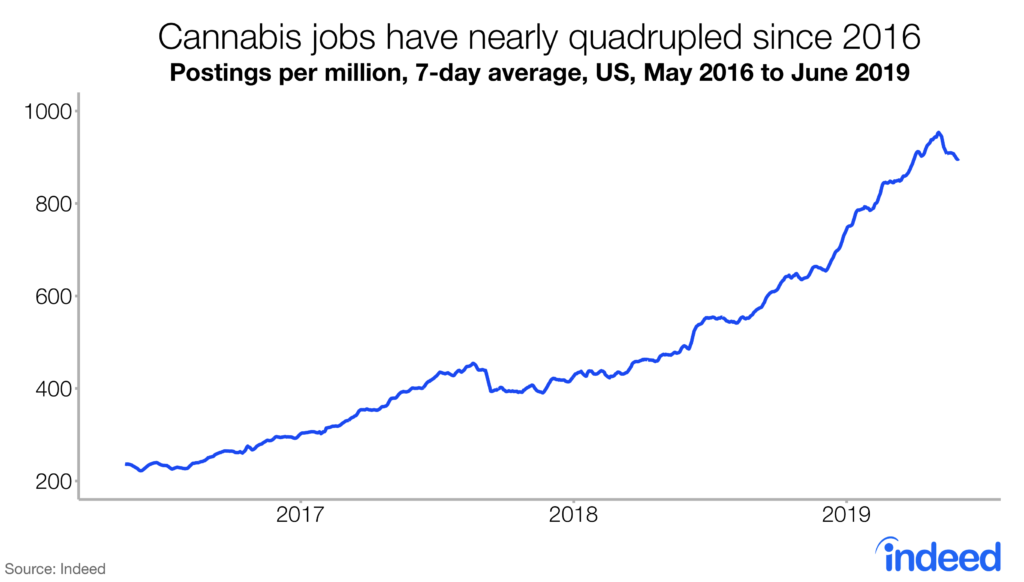
The runaway growth in cannabis job postings is hardly a surprise — it comes amid a wave of state moves to remove criminal penalties for marijuana. In 1996, California became the first state to legalize medical marijuana. Colorado and the state of Washington legalized recreational use in 2012. Since then, a total of 33 states have approved medical or recreational, or both. Pew Research Center estimates that 62% of Americans approve of legalization, while Gallup puts support even higher. A majority of both Democrats and Republicans now favor legal pot, making it one of the least polarizing issues in a polarizing time.
As cannabis has emerged from the black market, a new legitimate industry has opened — and that means that cannabis jobs are starting to show up on Indeed. Lots of jobs. Over the past three years, U.S. cannabis-related job postings on Indeed numbered in the tens of thousands. Some of these had jobs titles apparently related to cannabis, such as budtender, dispensary manager, grower, and trimmer. But many others were more commonplace, like sales associate and store manager.
We were careful to identify as cannabis jobs only those positions clearly related to the industry. First, we examined job descriptions for a list of keywords we considered cannabis identifiers, including the word cannabis itself, as well as budtender, dispensary, and CBD. We excluded postings that mentioned marijuana in other contexts, such as a requirement for a “marijuana drug test.”
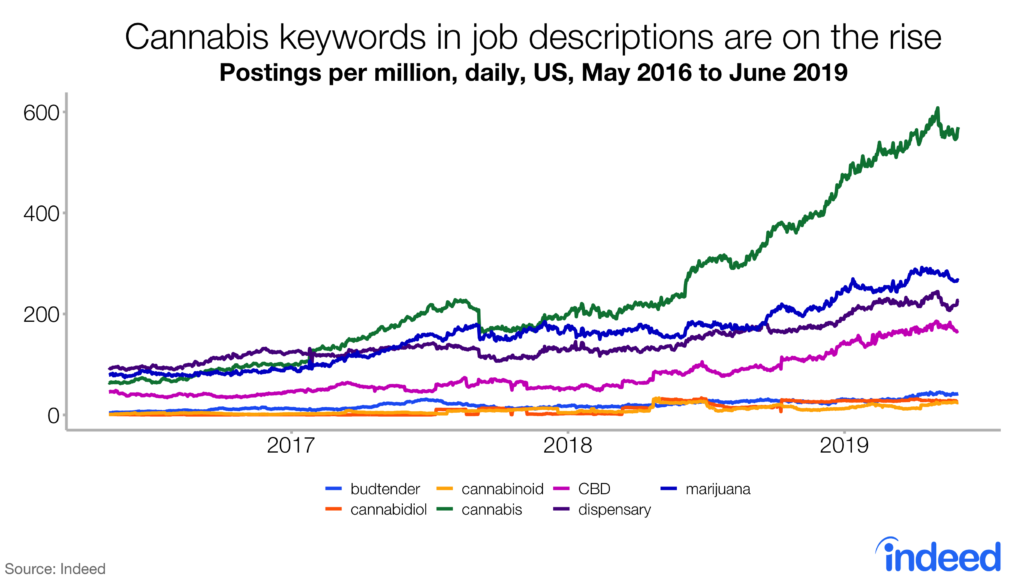
So what are the top cannabis jobs? If you want to work in the cannabis industry, on Indeed you’re most likely to find retail and sales-related positions. Marijuana budtender, or budtender for short, is the most common cannabis job title, with over 25% more postings than sales associate, the second-closest title. Associate has many variations, like client sales associate or patient sales associate for medical cannabis (not listed in table below). Other popular cannabis-specific job titles include dispensary manager, trimmer, and grower. Physician? Pharmacist? In states with a robust medical marijuana system, some medical job postings focus exclusively on diagnosing ailments and potentially prescribing cannabis to treat them.
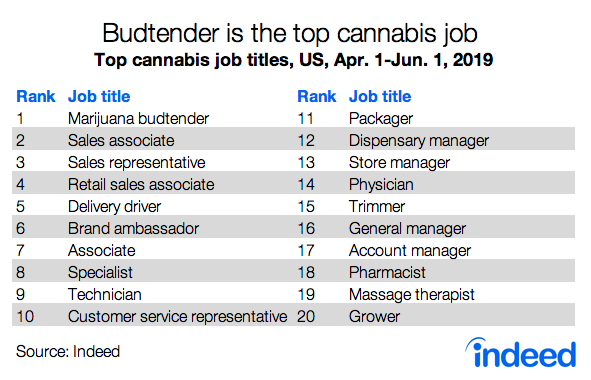
The top company hiring cannabis workers in the US is Harvest. Smokers Choice — the retail outlet specializing in CBD and vapes — is the number two employer. On the high-tech end is Weedmaps. But I have bad news. If you were hoping to land a job with Caliva (number 18) as their chief brand strategist, Jay-Z beat you to it.
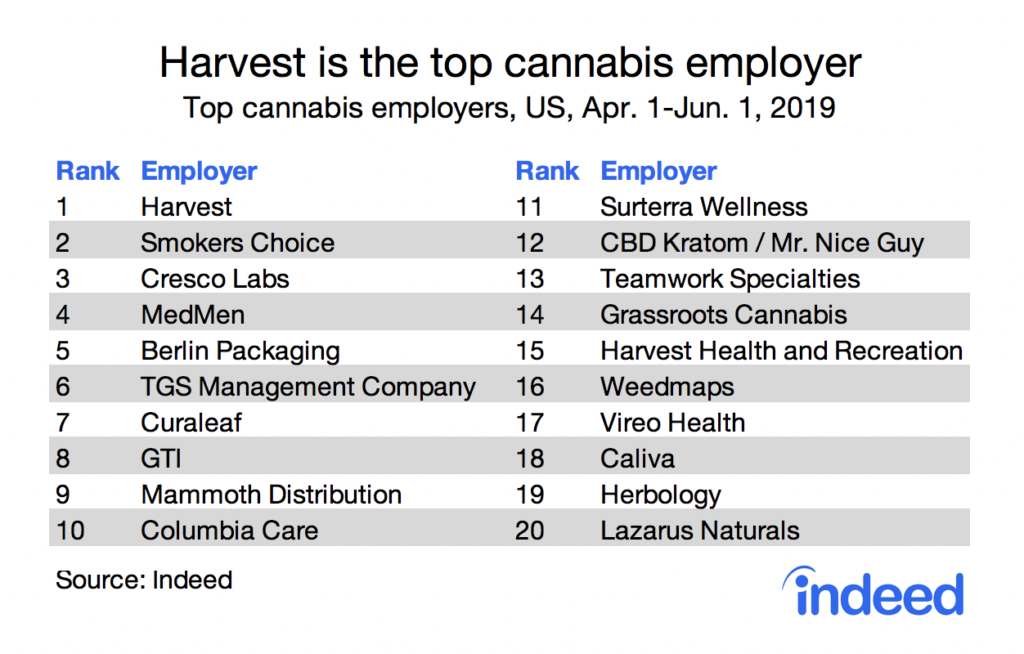
No surprise that California has by far the most cannabis jobs — it’s the largest distinct market for legal cannabis on Earth. In April and May 2019, California had 28% of all US cannabis job postings, with Colorado second at 11%. Several large states where only medical cannabis is authorized had plenty of postings. Florida, New York, Pennsylvania, and Arizona were all in the top 10 even though recreational cannabis is not fully legal. Illinois had 3% of cannabis jobs although its recently passed legalization law does not go into full effect until January 1, 2020.
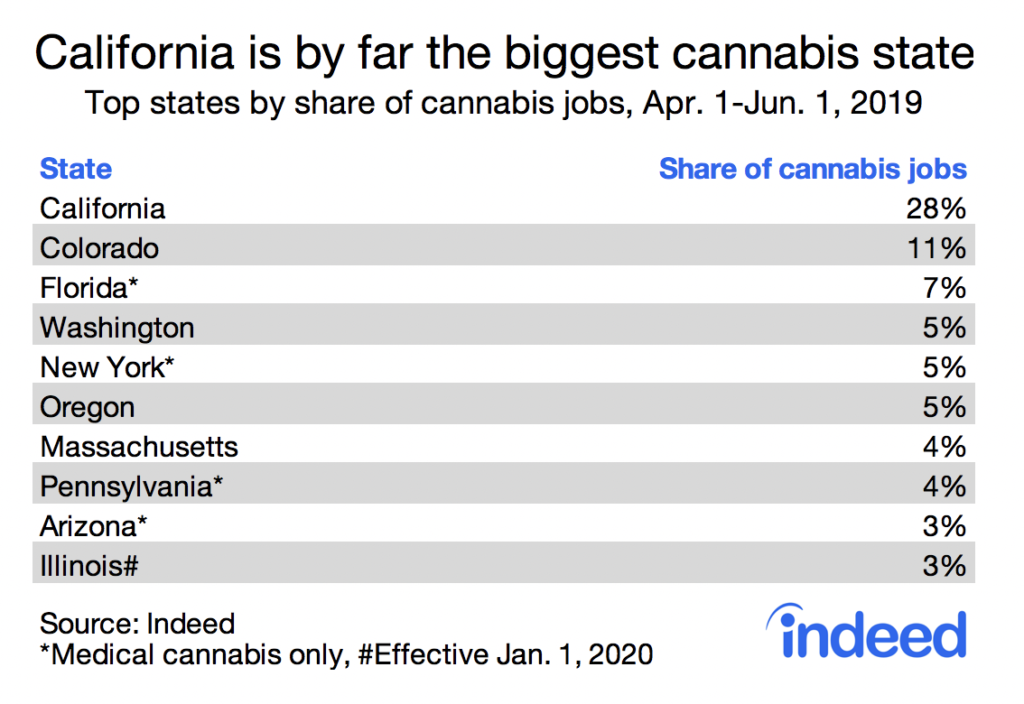
Clearly, the cannabis industry is booming. Employers are posting more jobs on Indeed to meet surging demand. But what about job seekers? They’re evidently excited by the prospect of working in cannabis. Searches with one or more cannabis keywords are up more than sevenfold since the start of 2016.
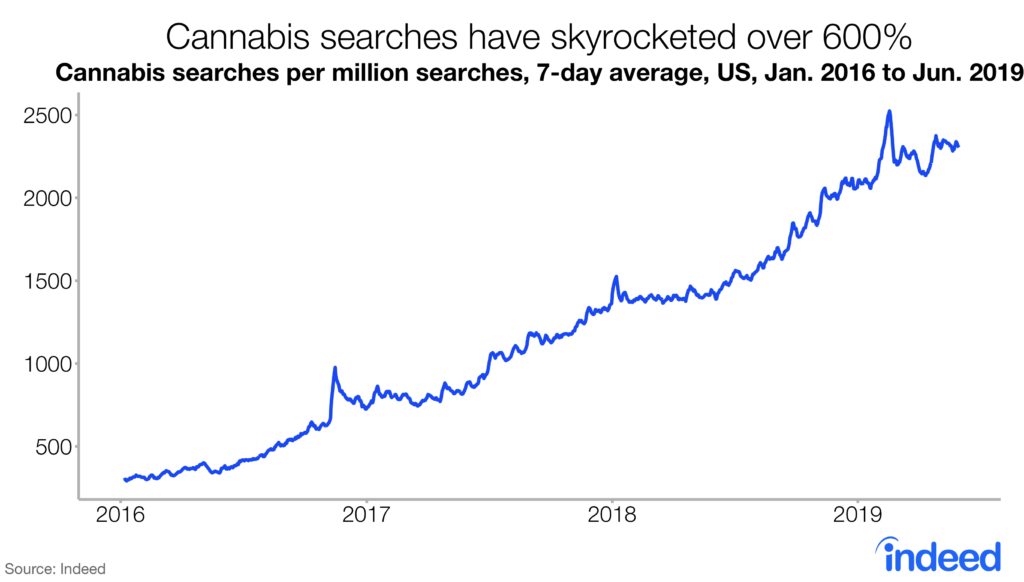
While job postings didn’t typically spike as additional states legalized pot, job seeker interest sure did. For job postings, the regulatory timeline keeps hiring in check. In many states, it takes months — sometimes years — before retail sales can begin, which means staffing happens gradually. Businesses might hire first for cultivation, then for processing and distribution, and finally for retail and marketing. And while states vary in regulation, hiring sometimes requires employers to be licensed.
Cannabis legalization has ushered in a jobs boom, from budtenders to dispensary managers in retail sales, growers and trimmers in cultivation, and brand ambassadors, web developers, and account executives in every aspect of the business. Jobs in cannabis are burgeoning, and it’s likely just the beginning.
Methodology
To identify cannabis-related job postings, we first queried job descriptions that included one or more of the following inclusionary keywords: cannabis, marijuana, dispensary, budtender, cannabidiol, cannabinoid, and CBD. Then we filtered out postings that included one or more phrases probably indicating the job was not in cannabis. Exclusionary phrases included drug test, drug screen, optical dispensary, illegal possession, and so on. All job postings, whether by job title, company, or state, are represented as a share of all US job postings.
To identify cannabis-related searches, we calculated the share of total Indeed job seeker searches in the US that included one or more of the seven terms noted above. Searches could include other words. The time period studied is from May 1, 2016 to June 1, 2019 for postings, and from January 1, 2016 to June 1, 2019 for searches.
